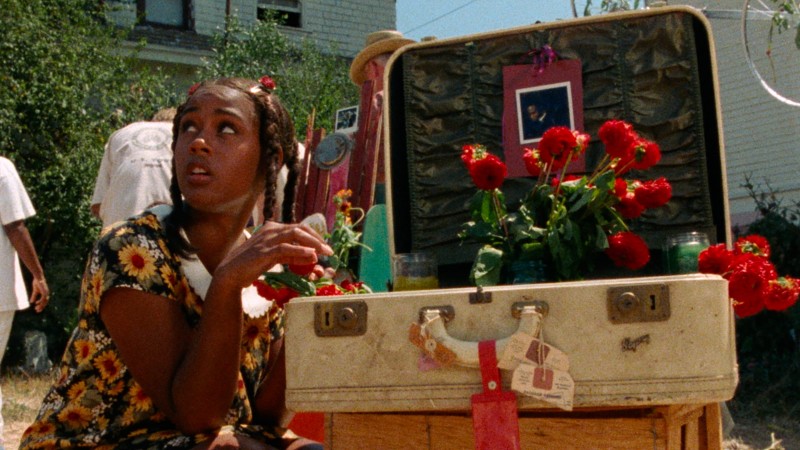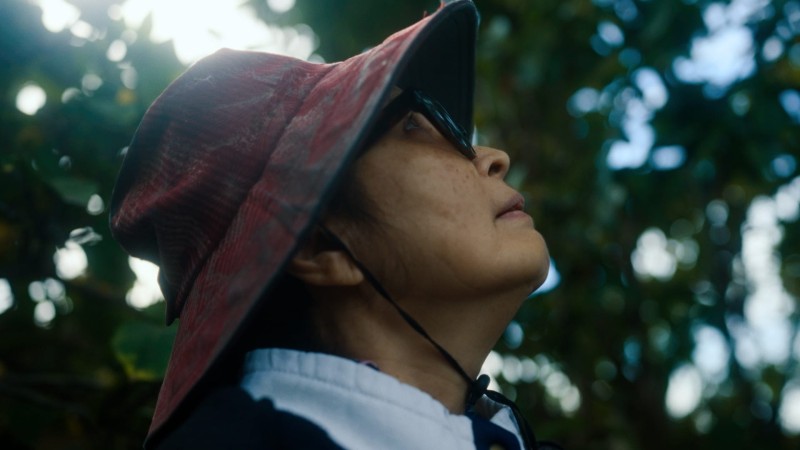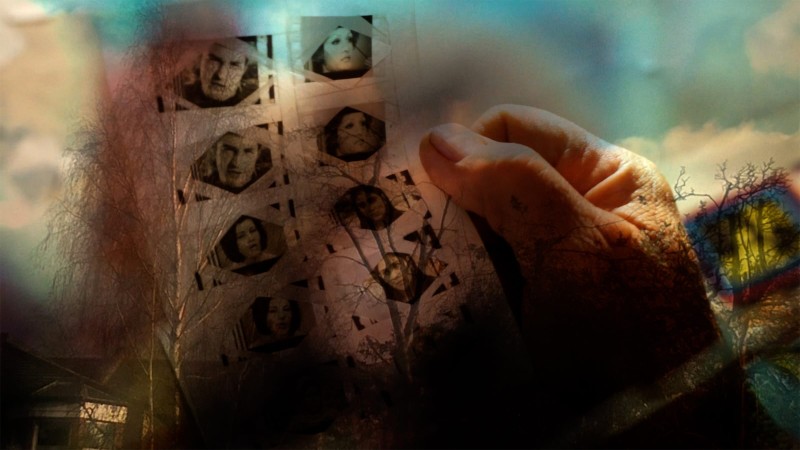Building a New World: A Conversation with Miranda July
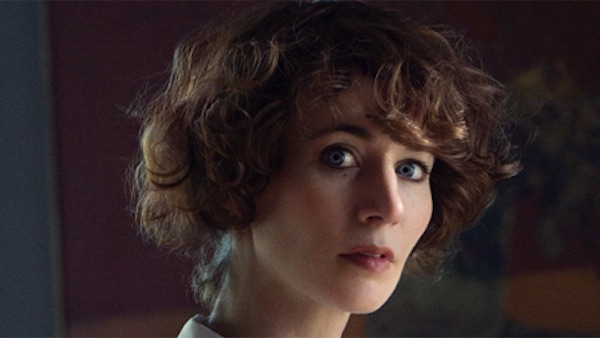
Since emerging on the independent film scene in 2005 with her Cannes-award-winning first feature, Me and You and Everyone We Know, Miranda July has remained a consistently surprising and prolific force in an ever-expanding range of mediums, winning acclaim for her films, performance art, short stories, and her first novel, 2015’s The First Bad Man. Built around a shape-shifting persona that moves effortlessly from playful transgression and warm-hearted humor to an unsettling emotional intensity, her work has traveled unpredictable paths in its quest to confront age-old questions about love, sexuality, artistic vocation, and the everyday absurdities of modern adulthood. Just as remarkable is her career-long insistence on cultivating a community of DIY female filmmakers in an industry still dominated by men, a mission that she began more than twenty years ago with her “all-girl video chain letter” Joanie4Jackie and has continued with her recently reported collaborations with filmmakers Amber Sealey and Josephine Decker.
For our latest Short + Feature on the Criterion Channel, we’re pairing July’s debut with a key work that inspired her to forge her own idiosyncratic voice as a female director, Jane Campion’s 1983 short student film Passionless Moments. In anticipation of the program premiering today, I spoke with July on the phone about what she learned from her early encounters with Campion and upcoming projects we can expect in the new year.
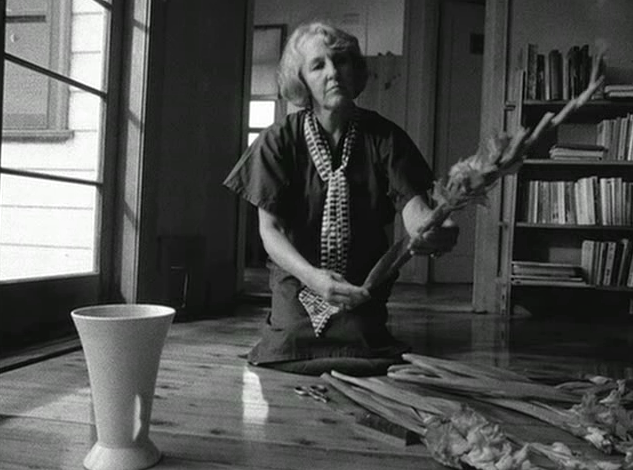
How did you first discover Passionless Moments?
When I was in high school, I rented it at a video store in Berkeley. That store was a really eclectic place; it was like a library where you could just walk in and discover things. The film was on a compilation of her shorts that also included Peel and A Girl’s Own Story. I picked it up randomly, and it was the first moment where I thought, oh, as a woman, I could use this medium in a very intimate, personal way that’s distinctly female, and with a point of view that’s not just telling a heroic story, like all the films I grew up with. It was the first time I thought: I could have made that. I guess, in being able to conceive of yourself in any job, it’s important to see someone you relate to enough, so that it actually feels viable.
Even though you had your first success in the film world about fifteen years after Campion had hers, you were still entering into an art-house scene with a glaring gender imbalance.
Yeah. And after seeing those Campion films, I didn’t find much else like that. I went and took some classes at U.C. Santa Cruz, which was still very much a boy’s club and didn’t connect with what I’d gotten out of Passionless Moments. But at the same time, there was the riot grrrl punk scene. I knew it didn’t have much to do with what Jane Campion was doing, but in my mind I connected her shorts with what I thought could exist as a kind of punk or alternative filmmaking for girls. That’s when I dropped out of school. I was twenty-one, and I started a project called Joanie4Jackie in 1995.
I wanted to see more movies by women that were like the Campion films I’d enjoyed. I had yet to make a movie myself, so I thought if I could see enough of these films, I might be able to do it. I made a pamphlet that invited girls and women to send me their short films, which I compiled onto tapes of ten movies each that I sent back to them. The tape came with a fan zine, and the women wrote letters to the rest of the group. I did that for almost ten years, and I went around the country showing the movies. In that context, it became easy to think of myself as a filmmaker. That was the only filmmaking world I was concerned with—I didn’t care about Hollywood or Sundance or any of that; it was all the same to me. I handed Joanie4Jackie over to Bard College when I made Me and You and Everyone We Know because I realized I couldn’t keep it up. But later this month, we’re launching the website with an archive of the project.
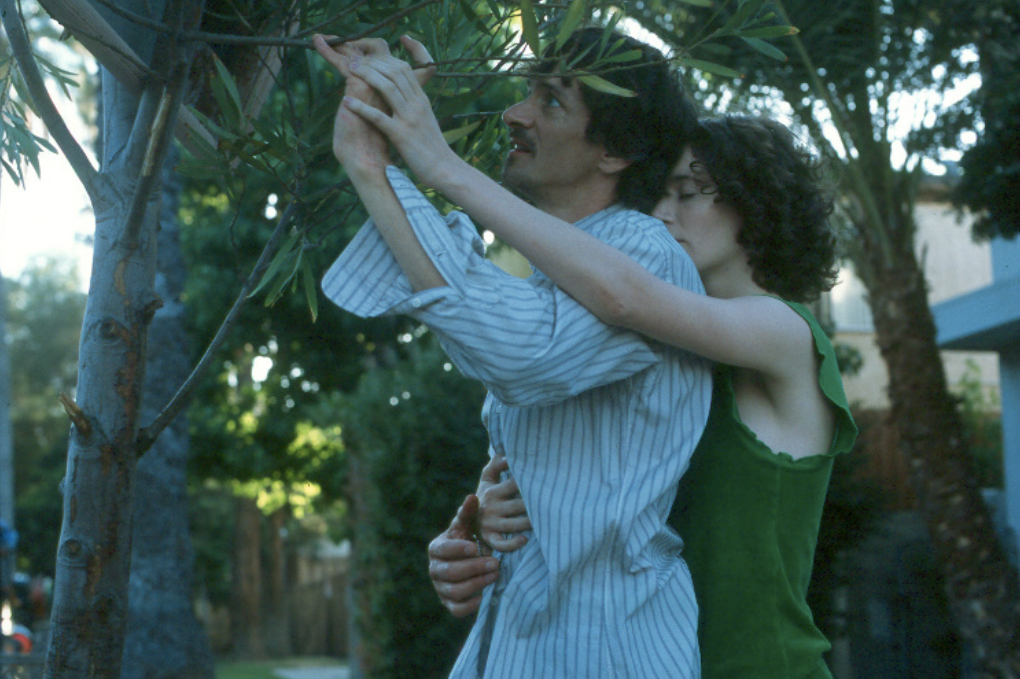
Did Campion end up having a direct influence on the aesthetic of your first films?
I don’t really study films in that way. I react to them the same way a regular audience member would, and I forget to remember that they are made by someone. But with Passionless Moments, I look back and think, hmm, I did pretty much rip this off on some level: this idea that there are these thoughts that should pass right by, but if you catch them and can manage to express them, you will have connected with the psyche at large. It’s more common in literature and cheaper art forms that people take the risk of focusing on things that are so internal and subtle and small. Seeing those things on the screen, taking up the space that film takes up, it almost feels like they shouldn’t be there. Passionless Moments is broken up into these little pieces, and I remember thinking, well, I don’t have it in me yet to write this one sweeping arc of a movie, but I do know how to make short films, and I probably could fit those together smartly enough for a feature. It felt like a challenge to see if I could do something like Passionless Moments but on a larger scale.
In watching Campion’s short films, and in making your own, is there anything that strikes you as being unique about short-form work?
I think the most interesting short films really have nothing to do with feature filmmaking. They’re not attempting to be shorter versions of anything. There’s a sense of what is this? It doesn’t even have to have an arc or a beginning, middle, and end. The unit of measurement is totally up for grabs—no one cares about this because it’s not going to make any money. And the most boring way to occupy that space would be to try and prove that you could make a feature film. It doesn’t prove that. But it could prove that you can generate magic.
My short films were more connected to performance. They weren’t art videos, but I was acting in them and playing multiple roles and figuring out that side of what I do. When I first started, I was barely writing stuff down beforehand or mapping it out, but it was in making those short films that I gradually realized this was stuff I could plan.

As someone who straddles multiple artistic disciplines, how much do your film influences cross over into your work in literature and art, or vice versa?
The influences definitely mix because I’m always coming off of another medium. Right now, I’m writing my next movie, and I’m interested in structure because I just came off of writing a novel for three years. Now I know all these things about telling a story that I didn’t know while I was making my last movie [The Future], things I wasn’t even that interested in. I’m just eager to use this new muscle in the medium of film, where I know that the problems that come up are often ones created by the fact that I didn’t think hard enough about structure when I was writing it.
I use Evernote, and I like that you can pull photos in. The last thing I put in yesterday was a photograph I took of a Nicole Eisenman painting called Coping. It’s just this tableau, an image you might find in Fellini, with people existing in this gray fog. It’s as good a visual reference for my film as a scene from any movie. It doesn’t matter to me if it’s a painting or a film or something else—you grab it wherever you can get it. At this stage, when you’re building a new world, you’re just greedy.
Can you tell me about your upcoming collaboration with Josephine Decker?
Initially, she reached out because she was interested in adapting my novel, The First Bad Man. I wasn’t interested in that novel turning into a movie, but it did lead me to her work. I loved her films Butter on the Latch and Thou Wast Mild and Lovely, but even more than loving them, I was like: who is this person? It was great when, a few months later, I got another e-mail asking if I’d like to act in her movie. I always say no to those kinds of invitations because I have so much to do, and I don’t have any career ambitions in that area. But I was interested in her, and it happened to line up with two weeks that I’d set aside to write while my husband and son were going to be out of town.
I thought I’d learn more about directing by acting in this movie than I would from sitting in my room writing, and that was definitely true. But I was so scared that I tried to quit a week before! I wrote this e-mail at one in the morning, like: “I am so sorry; as a director, I know how terrible this is, but I can’t do this . . .” She didn’t let me quit, but she did it in an amazing way that made me have faith in her. It was really one of the most fun, most engaging things I’ve ever done. And just for me, as a human, it’s probably not a bad idea to try trusting someone else for a short period of time!
Since it’s a new year, I’m wondering if there were any movies or books that caught your attention in 2016.
Right now, I’m reading The Kreutzer Sonata Variations, which has the Tolstoy novella followed by works written by his wife and his son. It chronicles the weird family legacy of that work. I also really loved this collection of Kafka ephemera called Is That Kafka? And I’m gearing up tonight to watch Toni Erdmann. Maren is a friend of mine; we met when our first movies were at Sundance, and we’re going to see each other next week. I remember her sitting in my living room years ago describing that movie, so it was amazing to see her with her little baby going to Cannes last year.
